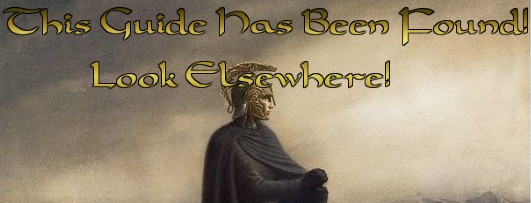Review Comment Guide
Contents
Basic Guidelines
Be Inclusive
Be sure to mention ALL players present in a thread when you write your review comments. If you are giving a single review for everyone in the thread (rather than individual reviews) please be sure to include everyone present. Nothing is worse than putting your heart and soul into a story, then to only getting a passing reference in the review.
Be Impartial
More often than not you might find yourself reviewing the thread of a friend, in these cases please try to take your own bias into account. Try to provide equal amounts of feedback regardless of your personal opinions.
Stay on Topic
Please ensure that your comments are kept on topic. As a reviewer you are there to provide feedback on the story that the authors have written. Do not talk about your own characters or get drawn into self-serving tangents.
Comment Components
The components of a review comment should always try and include the reviewer's personal reflection of the story, a critical analysis, and a conclusion.
Personal Reflection of the Story
The reviewer should mention parts of the story that they enjoyed or parts that they thought were intriguing. This is the reviewer’s moment to reflect on the story itself and share their opinions with the authors.
Example: “Wow, you really get the emotions Lavana is feeling across well. Her guilt and pain is wrapped up with her feelings about her sense of self, her feelings about her mother - she's a very complex character and I really enjoy reading how you write her. She feels very real, very flawed and with more strength than she gives herself credit for!” -Pegasus
Critical Analysis
The critical analysis is a review of the core elements of the story. This can include things such as grammar, or the plot structure. The point of the critical analysis is to help the writer improve their writing or to point out something that they have done exceptionally well.
If there are any issues in a thread, then consider pointing them out. Ask yourself first, is this an issue? Or is it simply a matter of your preference? If it's the latter, then focus on the positive. If, however, it's the former and there are issues, then try and critique them in a constructive manner. Something like the following example.
Example "In a few places, your punctuation was somewhat lacking and you seemed to have a lot of run on sentences. A quick proof read should negate that, and it certainly didn't detract from the story or the sense of atmosphere you got in there."
Try to end on a high note. If you point out a flaw, try to make suggestion on how to improve. The critical analysis should not be seen as an excuse to shame a writer. It is an opportunity to improve and stimulate growth. Please try to approach this in a positive light.
Suggested Items in the Critical Analysis
These are simply items to consider when doing a brief critical analysis. You must try and attempt to address at least of one of these items in your review. Two or more is preferable.
Purpose of the Story: Why was this written? Was a goal achieved?
Setting: Was the setting appropriate for the time and place? Were there anachronisms? Was enough detail provided to describe the setting?
Grammar/Syntax: Does the author use the correct punctuation? Do their sentences contain excessive amounts of incorrect grammar?
Plot Structure: Do the sequence of events make logical sense? Is the story easy to follow?
Characterization: Are the characters and NPCs reacting accurately? Are the NPCs being used appropriately?
Powerplaying: Is the character playing to their actual skill level?
Dialogue: Is the use of dialogue consistent? Does it make sense?
Conclusion:
If possible, try to end on a positive note. Reviews should be a positive experience for both the reviewer and the authors. If you note problems with the story, try to provide possible solutions.
If you find that there are substantial problems with a thread, especially skill or NPC abuse, please speak to a staff member.
